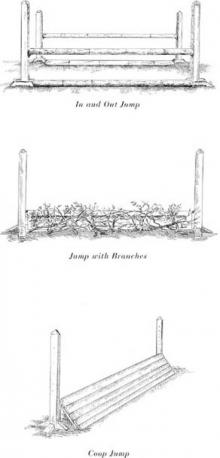- Home
- Jane Smiley
The Greenlanders Page 38
The Greenlanders Read online
Page 38
Now, seeing him looking about, Olof, who had been standing just outside the doorway, entered and came toward the priest. She stood respectfully, and cast her eyes down. She said, “Gudleif and Bjarni have gotten into a fight, Sira, and Bjarni has injured his shoulder, so that he can no longer pick up the large vats for Ingibjorg. The steward Petur wishes to have them beaten for fighting, but Sira Jon always said that I should come to him before folk were to be punished in that way.”
“Who are Gudleif and Bjarni and Ingibjorg?”
“Ingibjorg is the cook, and Bjarni is her helper. Gudleif is Bjarni’s older brother, and he is somewhat dim of wits, which is why Petur would like to have him beaten, but he dare not beat the one without beating the other, or Gudleif will be inflamed, and fight with Bjarni again as soon as they are alone.”
“What do you usually do with them?”
“Sometimes they are beaten and sometimes not, depending upon Sira Jon’s temper.”
“Does Bjarni have a chamber?”
“He sleeps in the kitchen, Sira, and takes care of the fire in the night. Gudleif sleeps in the cowbyre with the other cowmen.”
“Give Bjarni a place to rest, and send Gudleif to me.”
“In the hall here? Sira Jon didn’t like the outdoor servants coming into the hall.”
“Where did he talk to them, then?”
“He only talked to Petur.”
“He may come to me in the doorway.”
And so he went to the doorway, but he quickly saw that this was a mistake, for many servants were gathered in the yard, perhaps because of the fight, and his conversation with Gudleif was going to have many witnesses.
Now a man approached the doorway, and the others standing about made way for him. He was of low stature, with big shoulders and a thick yellow beard, although when he took off his cap, Pall Hallvardsson saw that he had little hair on his head. He looked Pall Hallvardsson quickly and shrewdly in the face, then cast his eyes downward. Pall Hallvardsson said, in a voice rather too loud, “So Gudleif, the story is that you have been fighting with your brother.”
“Ay, Sira, and I am little regretful, except that I did not stave his head in for him. I have few enough things of my own, that he should go among my stockings and mittens and make free with them, and then leave them about in the weather.”
“This seems a small thing to kill a brother for, if you indeed wish that you had crushed in his head.”
“Is it so to you then, that this is a small thing?” Gudleif looked at Pall Hallvardsson full in the face. “Had he better rummaged with my wife? For he did that too, though the neither of them will admit to it but they lie and dissemble, and say naught when they should be speaking fast, and speak fast when they should be saying naught. You’ll tell me that’s a small thing, too, surely.”
“No, it is not a small thing at all, but now you have put out the cook, for she has no one to carry the vats for her.”
“Indeed, Sira, so it is that my wife speaks to me, always throwing the cook at me, for the cook is fond of this snake Bjarni, and gives him bits of this and that and he revels my wife with them and draws her love away from me. But a cowman gives nothing and gains nothing except shit on his shoes, so that he can’t even come into the hall to eat as the others do, but must hang about the doorway with his trencher in his hands.”
“Gudleif, you should know that it is not here that we shall get our reward, but—”
“Yes, Sira, it is not here. These words are true enough.” And now he turned away, and it seemed to Pall Hallvardsson that they both knew that he would not have spoken in this manner to Sira Jon. And so Pall Hallvardsson drew himself up, but it was difficult to do so, and he raised his voice, and this, too, was a labor, and he called Gudleif back to him, and he said, “Gudleif, you have not been dismissed from my presence. The steward Petur wants to have you beaten for this fighting, for he thinks that otherwise you will not learn to stay away from Bjarni.”
“Nay, Sira, I will not learn this. I will never learn this until Bjarni has learned what is his and what is mine, so have me beaten indeed, for it matters not to me.” Now the man walked quickly down the hillside away from the hall, but the eyes of the folk did not follow him, they stayed upon Sira Pall Hallvardsson, and it seemed to him that they were measuring him with interest and pleasure, for it is a characteristic of the Greenlanders that they get the greatest pleasure out of a curious event, of which many opinions can be held and exchanged. Sira Pall Hallvardsson turned and went back into the hall. Olof came to him, and he said, “Is Bjarni meddling with Gudleif’s wife?”
“Folk say something to that effect.”
“Indeed, then, have them both beaten.” Olof went away, and Sira Pall Hallvardsson looked once again around the room, and did not wonder that Sira Jon had always felt far from heaven here. But Bishop Alf? A picture of the bishop giving a sermon came into Pall Hallvardsson’s mind, of the old man’s eyes protruding in their fiery stare, of the neatness of his toilet, and the care he took of his sleeves and collars. He had been Pall Hallvardsson’s confessor, but never had he said a word, only listened in cool silence to what Pall Hallvardsson had to say, then given the prescribed penance and absolution in clipped, cool tones. He had been a man of such forbidding coolness that he hardly even aroused gossip, much less, until now, contemplation. But where, indeed, had he thought himself to be when he looked about him at the Gardar hall, and heard the Greenlanders in the yard?
The next day, Sira Pall Hallvardsson went once again to Sira Jon in his cell, and had conversation with him, and this became their routine. Sira Jon stood carefully to greet the other priest when he entered, and held out his hand for it to be kissed, and then he would retreat again to his corner, and begin to talk, and sometimes Sira Pall Hallvardsson would understand the references of this conversation and sometimes he would not, and when he did not, Sira Jon would mock him with his ignorance. Concerning the accounts, or Sira Jon’s methods, or information of any kind concerning the administration of the bishopric, the mad priest was entirely and gleefully uncommunicative, and declared that such secrets as these were not for the ears of someone like Pall Hallvardsson. But still Pall Hallvardsson went in for his visit, and could not stay away. Sira Jon never covered his nakedness for the entire summer, and his skin became crusted with sores from sleeping on the damp ground. He did not admit to Sira Pall Hallvardsson that he noticed or cared, although sometimes Sira Pall Hallvardsson found him weeping, and considered that these might be the tears of pain. About other matters, matters brought to him by Petur or Olof, Pall Hallvardsson got into the habit of saying, “Do as you think should be done.” In the winter, he promised himself, when there is always much leisure in Greenland, he would learn about the workings of the bishopric, and how to control what was used and what was saved and what was done and not done. And so the summer went on, and there were many tales among the Greenlanders of Sira Jon’s adventures as a madman, for some folk said that he saw visions of what was to come, and rained down curses upon the heads of his enemies, and others said that he had become as a child, and could no longer speak or walk or feed himself, and others said that he came upon the servingwomen in their beds at night and lay with them, whether they would or no. Every district had its own tales, and these lasted through the winter, for the winter was neither mild nor severe, and there was little else to talk about.
After the reindeer hunt, Margret’s friend came to her from Isleif with some parcels of reindeer meat and such hides as he could get for her, not beautiful or distinctively marked, but serviceable enough. Margret, who had been looking out for him and had seen his boat out in the water, was waiting at the tiny Steinstraumstead jetty with her sheep and her cheeses and a packet of clothing, and when he came upon the strand, she prevented him from unloading his articles, but asked him to take her across, for she was ready to quit Steinstraumstead for the winter, and, indeed, for good, for the steading needed more care than she had in her to give it. And as they crossed Eri
ks Fjord, the servingman told her of some other farms abandoned this year—three or four in the valley leading to Isafjord, two more in Isafjord itself, and two on the way to Solar Fell, although it was also true that the skraelings had moved off from Solar Fell, and the farm of Ragnvald had been claimed by Bjorn Bollason the lawspeaker. There was other gossip, too, enough to keep them occupied for the trip, and the servingman rubbed his fingers and rowed more and more slowly, apparently because of his joint ill, but really, Margret suspected, because he had intended to have the day to himself for a good gossip with her, and she had cut his time short. She opened one of her bags, and took out a cheese, and they sat in the middle of Eriks Fjord talking and eating bits of cheese.
He told her about Sira Jon. “The eyes started from his head and his arms swiveled in their sockets, showing to anyone who cares to see it that the fellow is possessed of the devil and there can be no two opinions about it. And indeed, what help is there if the chief priest himself lies open to evil like a trencher on a bench? And so Sira Pall Hallvardsson is in charge, and perhaps, you might go there. Weren’t you a friend of Sira Pall Hallvardsson once?”
“And what do folk say of Sira Pall Hallvardsson?” asked Margret.
The man smiled. “The servingfolk say that he is timid enough for them, and lets them do as they please. It seems to me that everyone expected the new bishop a long time ago, and will be glad enough when he gets here. But folk have been expecting new bishops for most of my life, and only one has ever come.”
Margret sat looking out over the water. Icebergs were beginning to gather in the fjord, blue underneath, white on top.
“Or you might follow Sira Isleif to Bjorn Bollason the lawspeaker, for Bjorn Bollason is greedy for help.”
“So she has sent him off, then?”
“Not just yet. Folk say that any priest in the house is better than none after all, especially through the winter, when folk are dying and need to be ministered to, and it is better not to have to go out, but only to go among the bedclosets in your stocking feet. But Bjorn Bollason is urging her, and promises to send two or three of his folk in exchange, plus other gifts. It seems to me that her only hesitation has to do with the difference between what she considers enough and what Bjorn Bollason considers too much. She looks about her folk and tries to foresee who is going to die this winter!” He laughed. “Her son looks healthy enough, and it is not at all sure that she would send for a priest for Ragnleif!” He laughed again, and Margret smiled. “But indeed, folk who go there on errands say that Bjorn Bollason’s place is a merry one, and the masters do much to ingratiate themselves with the servants, as if the servants might go elsewhere, as indeed they might, that is true enough these days. That would be a good place for you.”
“Nay, Sira Isleif would attend too much to his lost sheep. Neither of these crowded steadings interests me. I have never been to Isafjord.”
“Isafjord is a bitter place, and it would be well if you never went there.”
“It is not so far off from Eriks Fjord, only over the hills a bit.”
“But that bit is enough. The whole place slopes northward, and the fjord is full of ice winter and summer. Folk who were born there, with lots of land, long to get out. It is truly said that a small farm in Vatna Hverfi district is like unto an estate in Isafjord.”
“Even so, I am curious to go there.”
Now the servingman picked up the oars to the boat and looked Margret full in the face. Then he said, “It is true enough that we are old, you and I, for your hair is as white as can be and my fingers are bent and my hips ache all the time now, day and night, winter and summer. But even so, there are many abandoned farmsteads these days, and some in happy locations, and it would please me to wed you and go to one of these places.”
“Do you know that I am married already to Olaf Finnbogason of Hvalsey Fjord? Have you heard that he has died?”
“Folk don’t hear much of the Hvalsey Fjorders, but I have not heard that anyone of that name has died.” After this they rowed in silence to the Brattahlid jetty, and Margret got out of the boat with her things, and packed them onto her back, and then for some days, she herded her sheep, which numbered nine this year, to Isafjord, and there she found herself a place for the winter at a large but somewhat ramshackle steading owned by a man named Eyvind, who had four daughters. As all folk do who are going into service, Margret gave her sheep and her cheeses and her reindeer hides and her meat to Eyvind as a pledge of her service, and he promised to return the value of these goods to her should she have to go elsewhere in the future. And all this time she looked out for Quimiak and Sigurd, for it was said everywhere that of all the districts of Greenland, the skraelings preferred Isafjord district, and spent a great deal of time there, winter and summer.
It was true that the Isafjorders were unlike any folk that Margret had known before. Eyvind and his daughters were small and dark, and the eldest daughter, although only eighteen winters old, was already stooped from the joint ill. Eyvind himself bragged of having had the joint ill very badly in his shoulder, so that his arm had been frozen for a time in the socket, but then spring had come and he had gone out and done the spring work with especial vigor, and his arm had freed itself. When Margret remarked that his shoulder looked peculiar as if the arm had come out of the socket, Eyvind laughed and said that indeed it had, and that had been the purpose of his vigor. And now he raised his arm above his head and lowered it again. “Now, old woman,” he said, “it may be that a man can have pain or he can have death, and surely in Isafjord a man with one arm is facing death. But the priests tell us that we must not choose death, if we have any hope of Heaven, and so I chose that my shoulder should swim freely in my flesh as payment for life, and so it does, and so I live, and when it swims too far, we nudge it back where it came from!” Now Eyvind laughed and his daughters laughed with him, and indeed, they laughed at many things, pinched and small and gray as they were. Food about the place was spare and always had been, although Eyvind had as much land to his steading as Asgeir had had in his best days.
The daughters were named Finna, Anna, Brenna, and Freydis. Their mother and brother had died in the recent stomach ill. After a messenger had come from Brattahlid to all the farmsteads of Isafjord to see how folk were faring, some of those who had been hale fell ill, and these two and three of the servingfolk had died. The four daughters were pleased to speak every day of the qualities of Heaven and to picture for each other the sort of life the souls of their mother and brother were leading. Each day they would sit over their small meals and begin:
“What do you think our mother is eating?” said Finna.
“Milk and honey is what the priest says,” said Anna.
“But surely other things, too,” said Finna.
“Oh, yes,” said Brenna. “Bread and grapes and calves’ meat, I would say.”
“And what,” said Finna, “will she make at her weaving today?”
“The thread will be mostly gold, I think,” said Anna. “But with some silver twisted in.”
“It seems to me that the angels would like a nice two-by-two twill.” Everyone laughed merrily.
“Do you think,” said Brenna, “that the shuttle flies back and forth of its own accord?”
“Perhaps,” said Freydis, “she is finished as soon as she begins, or as soon as she thinks of the pattern.”
“Maybe there is other thread, thread the colors of the rainbow,” said Anna.
Some days they would talk all morning about exactly how warm Heaven might be. It could not be warm enough so that souls went naked, or could it? If souls went naked, then why all the weaving, and if there was no weaving then how did souls occupy themselves? And in addition to this, Hell was said to be hot and cold, so it must be that Heaven was warm and cool, and then they would talk about whether it was as warm as a hillside with the sun shining right upon it, or as cool as a cool sunny day in the summer, with a breeze blowing or without a breeze blowing, with lots of ice in
the fjord or without very much ice in the fjord. And so their talk went on and on, as lively as could be, and it seemed to Margret sometimes that she could see the mother Hjordis in the fields of Heaven, or the streets of Heaven. Some folk said that Heaven was a holy city, as Jerusalem was, and so the daughters would imagine what a city was, and what Jerusalem was, and what a heavenly city Jerusalem might be. The folk at Eyvind’s steading chattered all the time, and Margret thought of something that Ingrid had said often when she was a child, of poor folk, that “They have words for meat and little else.”
Eyvind was practiced at getting through the winter, and had a routine of sheep killing through Yule and fasting through Lent that left him with three cows and twelve ewes with their lambs in the spring. In Lent, the whole household did as Margret and Asta had done during their winter at Steinstraumstead, that is, they stayed in bed under the coverlets and furs, half asleep and very hungry, saving what they could for an Easter feast. At the seal hunting time, Eyvind could hardly drag himself out of the steading, but he did so anyway, in the same way that he had made his shoulder work, and he returned with great quantities of meat and fat and everyone got up and ate some, and then more the next day, for, as they did this same thing every year, they knew about the sin of gluttony and the payment such sin exacted. And so it went at Eyvinds Stead in Isafjord, and when Margret spoke from time to time of other ways, the daughters and even Eyvind himself marveled at the peculiarities of folk elsewhere. Though Margret saw a number of skraelings during the winter and the following summer, none of them were Quimiak or any of his wives, nor indeed, the much-loved Sigurd Kolsson. Nonetheless, she decided to stay with Eyvind and his daughters, for she liked them very much, and considered their steading a good place for her.
Now it came time for the Thing, and one morning Eyvind said, “Well, I will go this year, though I haven’t gone in so many summers that I have lost count. But indeed, this year I have three or four daughters to marry out of Isafjord, and it will also be a pleasure to see the new lawspeaker. I have seen them all in my time, Gizur Gizurarson and Bishop Alf and Ivar Bardarson himself, and Osmund Thordarson.” And so the daughters got out their finest items of clothing and put them on and began the walk to Brattahlid, for Eyvind had no horses, as there are no horses in Isafjord. The land can no longer support them, though it is said that there were many horses there at one time. The daughters asked Margret to go with them, and she had no wish to refuse, but only to wrap up in her cloak and stay out of the light of folk’s attention.

 The Georges and the Jewels
The Georges and the Jewels Pie in the Sky: Book Four of the Horses of Oak Valley Ranch
Pie in the Sky: Book Four of the Horses of Oak Valley Ranch Duplicate Keys
Duplicate Keys Charles Dickens
Charles Dickens Good Faith
Good Faith Private Life
Private Life A Thousand Acres: A Novel
A Thousand Acres: A Novel The Greenlanders
The Greenlanders Ten Days in the Hills
Ten Days in the Hills Gee Whiz: Book Five of the Horses of Oak Valley Ranch
Gee Whiz: Book Five of the Horses of Oak Valley Ranch A Thousand Acres
A Thousand Acres The All-True Travels and Adventures of Lidie Newton
The All-True Travels and Adventures of Lidie Newton Ordinary Love and Good Will
Ordinary Love and Good Will Taking the Reins (An Ellen & Ned Book)
Taking the Reins (An Ellen & Ned Book) The Man Who Invented the Computer
The Man Who Invented the Computer Horse Heaven
Horse Heaven The Age of Grief
The Age of Grief Riding Lessons
Riding Lessons Perestroika in Paris
Perestroika in Paris A Good Horse: Book Two of the Horses of Oak Valley Ranch
A Good Horse: Book Two of the Horses of Oak Valley Ranch Saddles & Secrets (An Ellen & Ned Book)
Saddles & Secrets (An Ellen & Ned Book) Some Luck: A Novel
Some Luck: A Novel Champion Horse
Champion Horse Some Luck
Some Luck Gee Whiz
Gee Whiz Barn Blind
Barn Blind A Thousand Acres (1992 Pulitzer Prize)
A Thousand Acres (1992 Pulitzer Prize) Pie in the Sky
Pie in the Sky True Blue
True Blue A Thousand Acres_A Novel
A Thousand Acres_A Novel A Good Horse
A Good Horse